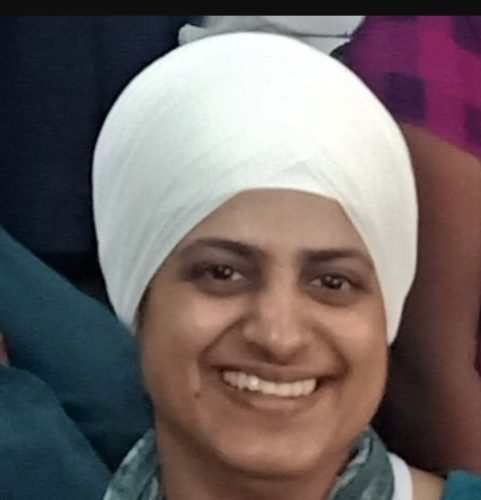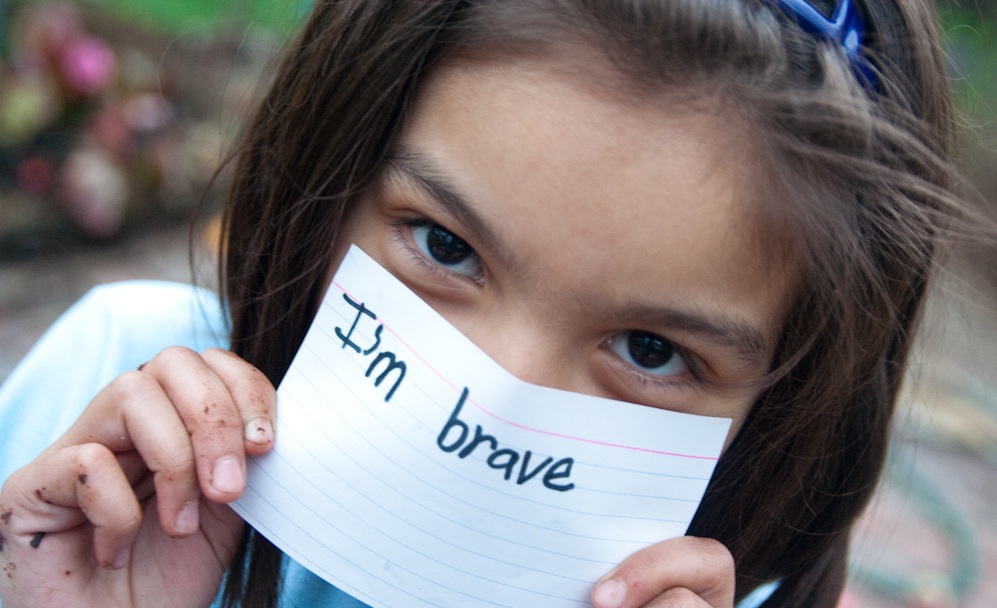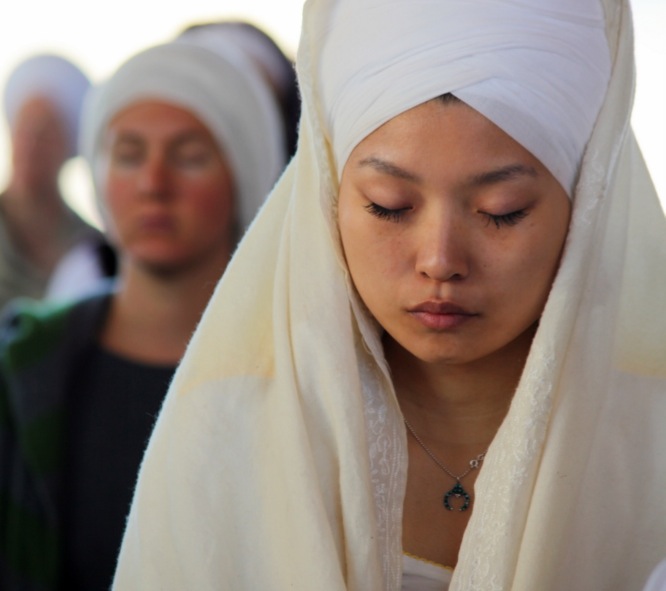By Gurpreet Kaur
We are in day 14 of the lockdown here in Chennai, India. I was taking my evening walk in the driveway to clear my mind. I was agonizing over a question and a solution continued to evade me. As I kept walking, a realization washed over me – we must give up our notions of what life is and learn to go with the flow. We don’t know what life brings to our doorstep the next moment.
A movement near the gate made me stop. A young man, perhaps 23-24 years old, was trying to catch my attention.
“Ma’am, if you don’t mind can I speak with you? I need some help.”
I wasn’t sure at first, but the helplessness in his eyes and his hesitation made me pause. He was wearing jeans with a shirt hanging loosely over his narrow frame. His hair was tied up in a small pony-tail high on his head. He had a small beard, and was visibly tanned, which he explained later was due to days of walking in the sun.
As I studied him, he told me about himself, in bits and pieces. Stopping sometimes to catch a breath, sometimes to hold back tears.
“I saw your dumalla* from a distance. I thought you must be from Punjab. I am from Punjab too. My family emigrated to Poland seven years ago. My brother’s death broke my father, and he wanted a change of scenery to deal with his grief. I completed my studies in Poland. I was selected for an internship with Segro which brought me back to India. And now there’s a lockdown. I am stuck at the airport with many other passengers. The foreign currency exchange counters are not working. We have been provided accommodation at the airport, but things are very bad there. They provide water but we have to buy our own food. Food at the airport is very expensive, and I have run out of cash.
I need to buy some medicine. I am left with 13 rupees. I need 87 rupees. Could you just help me with that?” He looked away as his voice choked.
“I have enough money in my account. I am not able to withdraw anything because of the lockdown. For a few days, I was taking help from a French national next to me. I would transfer seven euros to his account and he would exchange it for Indian currency worth six euros. But today he has found some transport and has moved out. I can give you my passport and IDs. You can check my profile on social media too. I just need 87 rupees. I am not asking for anything else.”
He went on to give me more personal details to reassure me that he was not trying to con me.
“We were in the lorry that was intercepted at the border. We were desperate to go home. The lorry driver charged us 3000 rupees to drop us up to Ahmedabad. From there, I was hoping to go to Delhi and then to my village in Punjab. I lost that money too. The driver is now in jail. I have to wait till the 15th for the flights to start operating. I want to go to my village in Punjab. There I can access my bank account and also pay you back.”
As he sat down on the stone slab near the gate, I could see that he was worn out and distressed. I asked him if he had eaten anything. He said he had not had anything since yesterday. And his voice choked again. I was pained to see a human being having to go through desperation and stress in an unknown city with no friend, no family, no acquaintance. Left completely to fend for himself.
Beginning to relax a little by now, he began to ask me about my family. My mind went back to stories recounted by my parents about the 1947 Punjab Partition and anti-Sikh pogroms of 1984. I have no roots in present day Punjab. My grandparents had to leave everything behind during the Partition. In fact, my father was born in a refugee camp in Gilgit, currently in Pakistan administered Kashmir. It helped me understand in some way what it means to be stranded far away from home. To have to live your life day-by-day not knowing what tomorrow will bring.
My aunt would narrate a story about my father when he was two years old. The family was in a refugee camp. One evening when they sat down in rows for dinner, she noticed that he ate half his roti and tucked the other half into his pocket. When she enquired, he told her he was saving it because there may be no food the next day. It still breaks my heart when I think how he was forced to learn tough lessons of life at a tender age. I always wish I could go back into the past to meet my father in his childhood. Give him a wholesome meal, a restful shade and heal his wounds.
And give that little boy the comfort that Mata Khivi did for so many:
ਬਲਵੰਡ ਖੀਵੀ ਨੇਕ ਜਨ ਜਿਸੁ ਬਹੁਤੀ ਛਾਉ ਪਤ੍ਰਾਲੀ ॥
balava(n)dd kheevee nek jan jis bahutee chhaau patraalee ||
Balwand says that Khivi, the Guru’s wife, is a noble woman, who gives soothing, leafy shade to all.
ਲੰਗਰਿ ਦਉਲਤਿ ਵੰਡੀਐ ਰਸੁ ਅੰਮ੍ਰਿਤੁ ਖੀਰਿ ਘਿਆਲੀ ॥
la(n)gar dhaulat va(n)ddeeaai ras a(n)mrit kheer ghiaalee ||
She distributes the bounty of the Guru’s Langar; the kheer – the rice pudding and ghee, is like sweet ambrosia. – Guru Granth Sahib, Ang 967.
This moment, as I saw this young man staring ahead blank in the air, it seemed like my father’s past playing out again. And this was my chance to right some wrongs.
I rushed inside to stuff some fruits and buttermilk in a bag as there won’t be any shops open to buy food till the next morning. Along with the bag, I pressed some money into his hands to help him tide over the next few weeks. He hesitated at first, but eventually agreed to take it after some cajoling and reassurances.
“I am very embarrassed. I don’t know you, have never met you, and here I am taking money from you. My parents have always done everything for me. I wouldn’t even wash my glass of water. I would just eat and leave things for my mother to clear-up. Today, I realize the value of that care, because I am all by myself.”
He left thanking me profusely – alternating between folded hands, “Sat Sri Akal” and a footballer’s half salute, saying he was indebted to me for life and will return the money as soon as he reaches home.
What I couldn’t tell him enough was that it was not given with the expectation to be repaid. Like Shams-i- Tabrizi wrote –
Adam’s children are limbs of one body,
That in creation are made of one gem.
When life and time hurt a limb,
Other limbs will not be at ease.
You who are not sad for the suffering of others,
Do not deserve to be called human
And, as Guru Gobind Singh Ji said: Maanas ki jaat sabai ekai pehchaanbo. Recognize all of humanity as one.
I hope he finds his way back home safely, in good health.
* I was very touched by the fact that the sight of someone in a Dumalla encouraged this stranger to seek help. This is one of the ideals that the Sikh turban stands for – to make you stand out in a crowd as someone who has vowed to uphold the principles of justice and human dignity. This incident further strengthened my conviction that Sikh women need to stand up and reclaim our half of the sky. To keep alive the unique identity accorded to us by the 5Ks. To keep alive the values of fearlessness and compassion. Mata Sahib Kaur was proclaimed as the mother of Khalsa. We need more mothers in whom children can see the image of Guru Gobind Singh. Mai Bhago donned battle armour when the men of her village fled the battlefield. We need more women to take up the fight for Sikh values when many of our men are abandoning them.

Postscript
A few weeks after the incident, we are seeing incidents of communal hatred amidst rumors about the spread of the corona virus. It seems like history is repeating itself yet again. It is beckoning us. It is expecting us to stand up and play our part.
There will be two types of people in this era, where do we choose to stand?
Let mistrust rule our head? Or, let ourselves feel another’s pain?
Choose to be indifferent and shut the door? Or, welcome the stranger in?
Consume the barrage of hate quietly? Or, stand up for humanity?
Go on with your own life? Or, make it the mission of our life to leave this world a better place?
History is watching us, and the future is waiting.
Names and places changed to protect the identity of the persons.

Gurpreet Kaur has 14 years of experience in non-profit leadership, strategic planning, social and educational change, school improvement, teacher professional development, research and policy advocacy. Currently, she is working on social emotional learning at primary, middle and high school levels, inter-faith understanding and Sikh philosophy and practice in everyday life. Her prior roles include serving as State Head at Azim Premji Foundation, Puducherry where she led a team of 40 teacher educators, and as a management consultant at McKinsey and Company. She holds a Master’s in Management Studies from the Jamnalal Bajaj Institute of Management Studies, Mumbai, India.





1 Comment
Biswajit
10/12/2021 at 8:46 pmExcellent article
Punjabis are the best people on earth.
Got to know your good writing skill today.
You are a good human being
Keep it up 🙏🙏